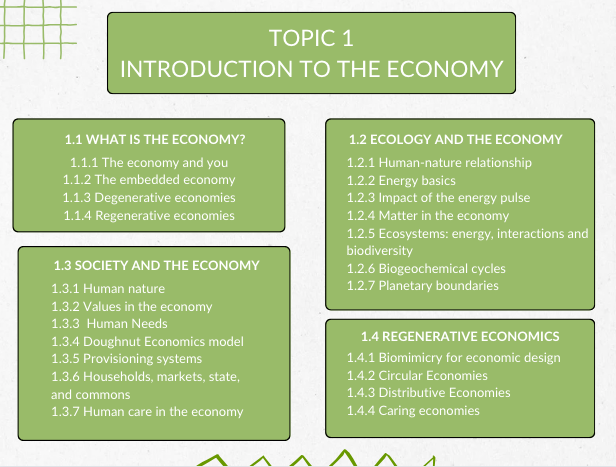May 1, 2024
Climate education now has a foothold in schools globally, often through the inspiring grassroots work of concerned students and teachers. Slowly, change is coming top-down too. The United Nations has called for climate education to be a part of teaching in all schools by 2025. Some countries like Cambodia, the Dominican Republic, Colombia, Argentina and Italy have taken steps to include climate and/or broader environmental education in their schooling systems. In the United States, Connecticut and New Jersey remain the only two states which require climate education.
So far, the key leverage points for environmental education have been science classes where ecological breakdown is addressed in scientific terms. Some social studies disciplines, such as AP Human Geography, address the impact of climate change on communities. Service learning might encourage students to address environmental problems. These efforts are a great start and should be applauded. But we wonder — why aren’t we addressing these issues in the discipline studying the human systems responsible for ecological breakdown? Yes, “it’s the economy, stupid.”
Let’s be clear. Many primary and secondary students around the world get no economics education at all. In the crowded school curriculum, economics has to fight with all the other worthy things we want to teach students in the limited school day. In the U.S., only 22 states require economics as a graduation requirement. For many others, economics might be offered as an elective that only some students choose to take. The fact that many schools don’t teach economics may reflect our mental models about what economics is and the way the discipline has been taught until now. The content is often abstract, with diagrammatic and mathematical analyses divorced from intuitive understanding and students’ own lived experiences. The coupling of abstract content with pedagogical practices focused on exams provides little scope for questioning how our economies work.
Economics is so much more than supply and demand diagrams and analyses of markets. The economy and economics is central to what it means to be human. The economy is all the human systems we create to transfer and transform energy and matter to meet human needs. These human systems are bundles of relationships and interactions with other humans and nature. Economics is the study and practice of these relationships and interactions. As Oxford economist Kate Raworth puts it “Economics is the mother tongue of public policy, the language of public life, and the mindset that shapes society.” Given the tremendous impact this discipline has on how we live and work, studying and practicing economics should be at the core of our education systems, and holds the key to human and ecological well-being.
We need to understand that economics involves organizing ourselves to care for other human beings and for the ecological systems of which we are a part and on which we depend. Unfortunately, our current economics courses don’t focus on human and ecological well-being. Worse than that, they use models with assumptions that run counter to values that most people support. They propose that human beings are selfish and aim to maximize their own personal utility. The models assume that the goal of business is to maximize profits regardless of ethical considerations. They advocate for endless growth in gross domestic product, regardless of the ecological consequences. The economy is presented as separate from society and nature, framed as “externalities.” They ignore the vital role of unpaid household care and domestic work, and the commons, in meeting human needs.
When we step back to look at the messages that economics courses send young people, maybe it’s a good thing that many schools don’t offer the subject! If we believe that the values we teach in schools impact students’ character, wouldn’t we want to understand our economic activities in a more cooperative and reciprocal way, focused on meeting human needs within planetary boundaries, aiming for sufficiency in balance with nature?
Fortunately, we’re working to address this problem. In early 2023, two student groups, SOS-UK and Teach the Future, invited teachers and academics to revise secondary economics curricula. Through this work, a new syllabus in Regenerative Economics has been developed that reframes the purpose and workings of the economy. The new syllabus was inspired and co-authored by Oxford economist Kate Raworth, the author of Doughnut Economics. It builds on ideas from many schools of thought in economics by:
- framing complex, adaptive economic systems as embedded in and dependent upon social and natural systems;
- presenting the economy, including business and finance, as a means to achieve social and ecological wellbeing, rather than as an end in itself;
- recognizing the importance of multiple provisioning institutions — the household, the market, the commons and the state — and highlighting their interdependence;
- exploring the role, impact, and ethical responsibilities associated with the international exchanges of a country, its businesses and its residents;
- helping students understand their own lived experience in the economy, and how they can be part of transforming current economic systems to meet human needs within planetary boundaries.
We’re now building an open-access, online course book with text and activities, along with a community, to support teachers and students around the world learn economics as it should be — the study and practice of meeting human needs within planetary boundaries. These materials can be used to supplement mandated economics curricula, run as an entire elective course, used in other courses to make connections to the economy, and they can serve as inspiration for institutional-level curriculum change. Getting out of the box of old economic thinking is hard, but this new, coherent and comprehensive approach can help set a new north star.
We’re writing the learning materials in 2024 and posting them as they are produced and reviewed by academics, teachers and students. The graphic below captures the content covered in Topic 1: Introduction to the economy. You can join us on this adventure to refocus economics on human care work for people and the planet by signing up for our newsletter, joining the LinkedIn community and/or offering to pilot on any scale.
Our economies are a social construct. We designed them, and we can redesign them to meet human needs within planetary boundaries. This new approach will help us do that. If you’re as fired up about shifting the economics narrative as we are, get in touch!
www.regenerativeeconomics.earth

You may also be interested in reading more articles written by Michelle Blanchet for Intrepid Ed News.


